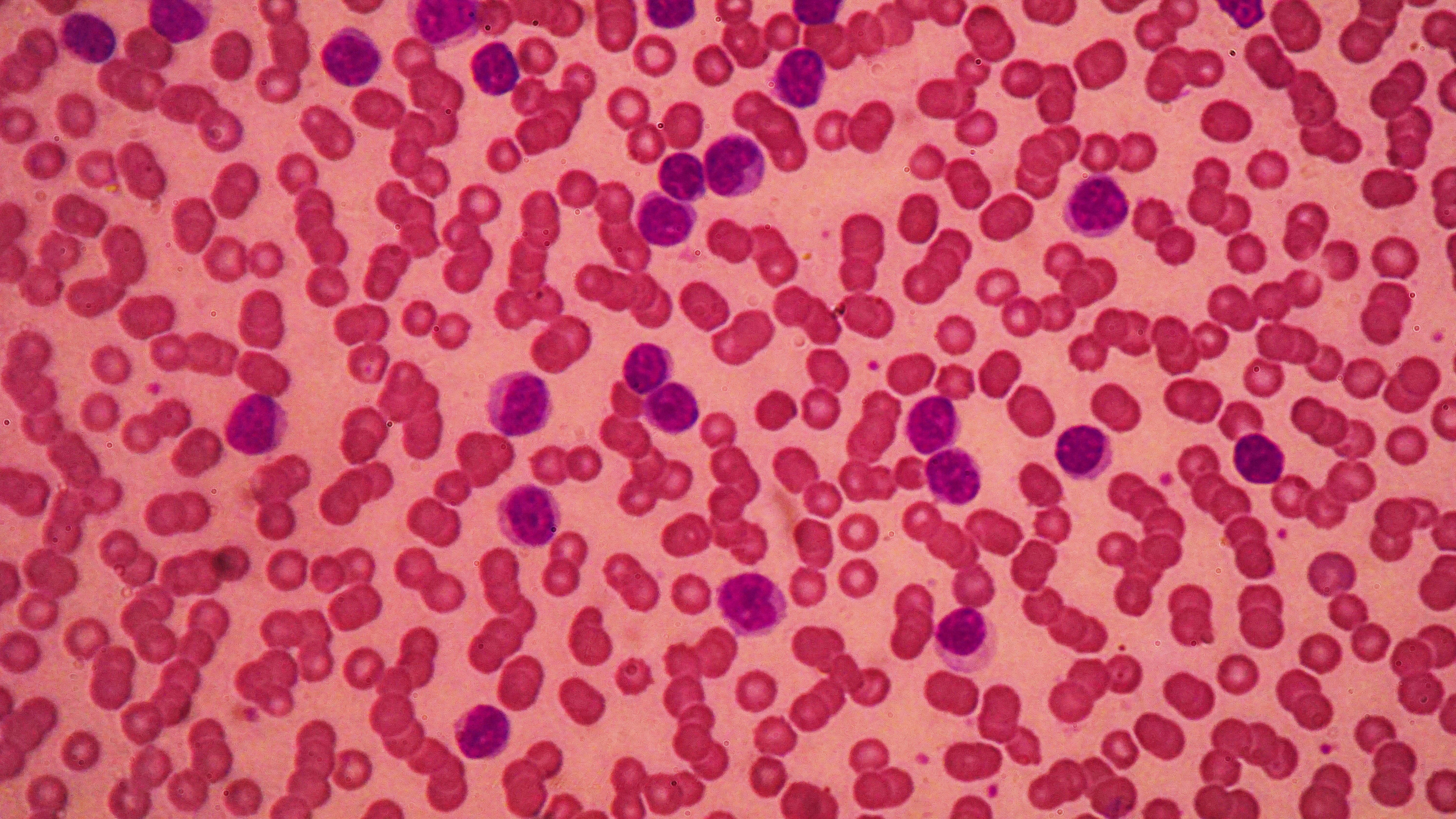Dosing of NX-2127 in patients with chronic lymphocytic leukemia (CLL) has been initiated in the first of multiple phase 1b expansion cohorts in a clinical trial being conducted in patients with relapsed or refractory B-cell malignancies, according to a press release by Nurix Therapeutics, Inc.1
The addition of the CLL expansion cohorts is based on recent data from a phase 1a dose-escalation study of NX-2127.
About the First-in-Human Study of NX-2127
Trial Name: A Phase 1, Dose Escalation, Safety and Tolerability Study of NX-2127, a Bruton's Tyrosine Kinase (BTK) Degrader, in Adults With Relapsed/Refractory B-cell MalignanciesActual Study Start Date
Indentifier: NCT04830137
Completion Date: November 2023
Sponsor: Nurix Therapeutics, Inc.
Recruitment Contact: nx2127001@nurixtx.com
“Our decision to advance NX-2127 in patients with CLL is based on the promising efficacy, safety, pharmacokinetics, and pharmacodynamic data from the ongoing phase 1a dose-escalation trial. There is a significant unmet need for a therapeutic approach with the potential to address the growing problem of relapse due to the development of BTK inhibitor resistance. We aim to meet that need and are encouraged by the emerging data demonstrating the potential of BTK degradation to treat acquired resistance mutations for both standard of care and newly developed BTK inhibitors,” said Robert J. Brown, MD, executive vice president of clinical development at Nurix, in a press release.
In the study (NCT04830137), the agent demonstrated a clinically meaningful benefit, which included confirmed response in highly pretreated patients with R/R CLL who received a median of 6 prior therapies.
Moreover, there were clinical responses observed in the subgroup of patients with BTK mutation that confer resistance to current BTK targeted therapies including covalent and noncovalent BTK inhibitors. All patients in the study had robust and durable BTK degradation and immunomodulatory activity mediated by way of E3 ligase cereblon. The safety of NX-2127 at the 100 mg dose level in the phase 1a study was favorable.
The phase 1a study included patients with CLL, small lymphocytic lymphoma, Waldenstrom macroglobulinemia, mantle cell lymphoma, marginal zone lymphoma, follicular lymphoma, diffuse large B-cell lymphoma. The patients were assessed for the coprimary end points of the number of participants with protocol-specified dose-limiting toxicities, establishing the maximum-tolerated dose and recommended phase 1b dose of NX-2127, and determining the number of patients with adverse events and laboratory abnormalities.2
In the phase 1b portion of the study, investigators will evaluate the clinical activity of NX-2127 at the recommended phase 1b dose based on the investigator-assessed overall response rate. Secondary end points of the study will include pharmacokinetics, duration of response, progression-free survival, overall survival, complete response rate (CR) or CR with incomplete marrow recovery as assessed by investigators, and safety/tolerability.
To be eligible for inclusion in the study, patients must be 18 years of age or older with measurable disease, an ECOG performance score of 0 or 1, and adequate organ and bone marrow function.
“We look forward to highlighting the biomarker data and preliminary safety and efficacy data that guided our decision to expand the trial for CLL patients at Nurix’s R&D Day, scheduled for May 26th in New York City, and will provide a full clinical update at a future medical conference in the second half of 2022,” added Brown, in a statement.1
REFERENCES:
1. Nurix Therapeutics announces positive dose finding data in chronic lymphocytic leukemia and advances NX-2127 to next phase of clinical development. News release. May 26, 2022. Accessed May 26, 2022. https://bit.ly/39TOkMT
2. A study of NX-2127 in adults with relapsed/refractory b-cell malignancies. Clinicaltrials.gov. Updated March 28, 2022. Accessed May 26, 2022. https://bit.ly/3wP20R6
